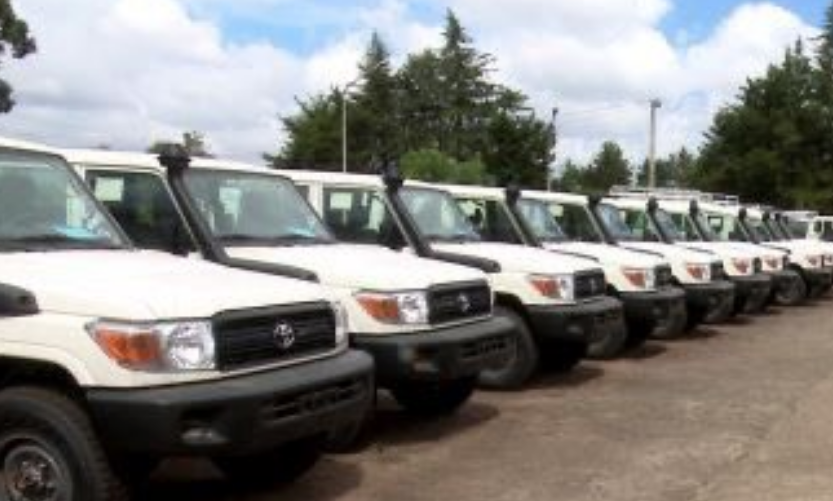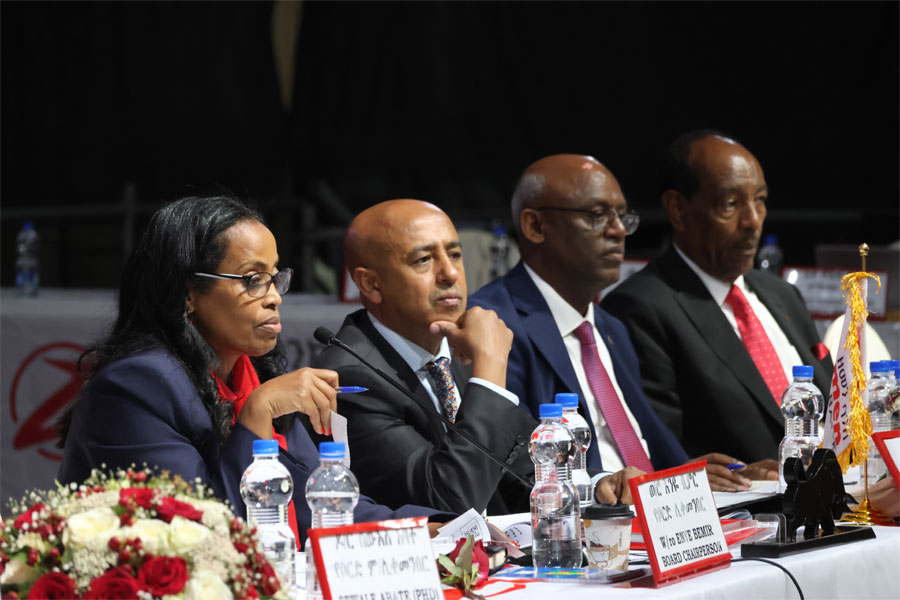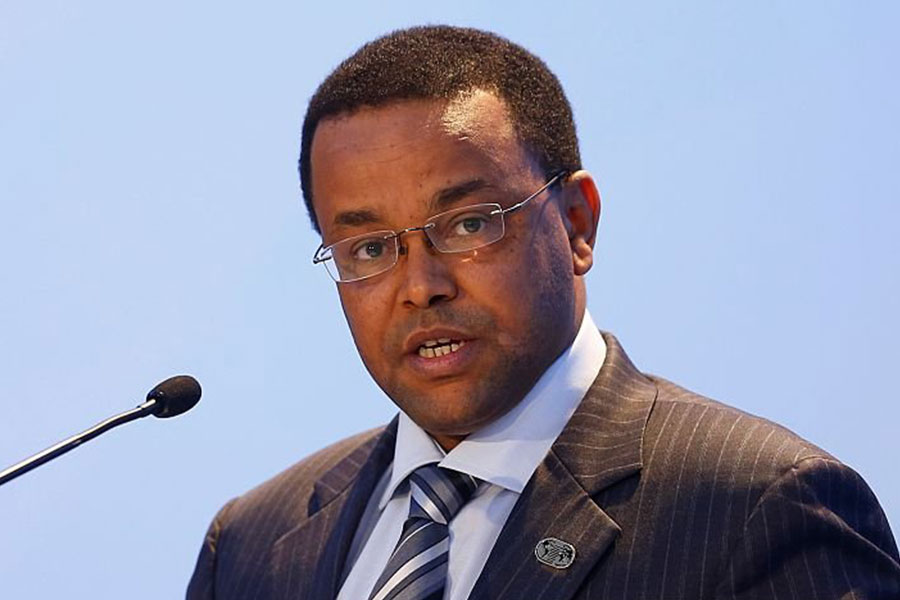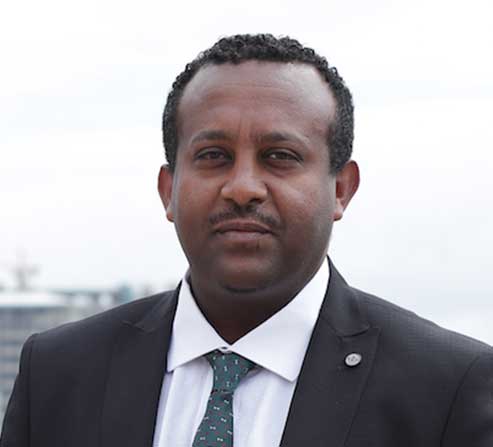
Nov 30 , 2019
By TEMESGEN MULUGETA ( FORTUNE STAFF WRITER )
 The vehicles will be distributed to 58 districts in the Oromia, Amhara, SNNP, Tigray, Benishangul-Gumuz and Gambella regional states. Except for three of the vehicles, the rest will be handed to the regional states.
The vehicles will be distributed to 58 districts in the Oromia, Amhara, SNNP, Tigray, Benishangul-Gumuz and Gambella regional states. Except for three of the vehicles, the rest will be handed to the regional states. The Ministry of Agriculture received 122 field vehicles as part of its Livestock & Fisheries Sector Development Project. Costing 102 million Br, the financing comes from the World Bank.
The vehicles will be distributed to 58 districts in the Oromia, Amhara, SNNP, Tigray, Benishangul-Gumuz and Gambella regional states. Except for three of the vehicles, the rest will be handed to the regional states.
The vehicles were procured through the UN Procurement Division, which provides responsive and effective procurement services and business advice to organisations such as the World Bank.
Nine out of the imported cars, all of which have GPS systems, are long base, while six are hardtop and the rest are double top Toyota vehicles.
“The vehicles will solve logistics problems in the beneficiary regional states,” said Thomas Chernet (PhD), national project coordinator at the Ministry.
The vehicles are part of the six-year fishery and livestock development project that was started in September 2018 and funded by the World Bank. The project has 176 million dollars set aside by the international organisation.
It was established to increase productivity and commercialisation of producers and processors in selected value chains, including strengthening service delivery systems in the livestock and fisheries sector and responding promptly and effectively to an emerging crisis or emergency.
The project has three components that have value chains within the dairy, poultry, meat and fisheries industries. They include linking harvest to market, strengthening institutional programmes and capacity building. The programme supports farmers in designing a development chain that relates to three clusters focusing on low-income farmers, unemployed youth and females. It will not provide direct cash support but in-kind support.
“The project aims to provide the resources, through in-kind support, upon which a modern livestock and fisheries industry can be built,” said Thomas.
Ethiopia has one of the highest livestock populations in the world at about 133 million. While the nation has the potential to produce 94,500tn of fish a year, Ethiopia currently only produces 56,133tn of fish, just 59.4pc of the potential. Kenya’s fish production from freshwater sources stood at almost double the size of Ethiopia in 2017.
Researchers are not close to farmers to provide support because of logistical constraints, thus in-kind donations of this type will have a positive impact to address the issue of access, according to Habtamu Tassew (PhD), associate professor at Bahir Dar University's College of Agriculture & Environmental Sciences.
“If the nation wants to grow the sector, livestock and fisheries has to be re-established as a ministry and conduct research that can make an impact on the industry," said Habtamu. “The agricultural sector requires more resources to establish a strong agricultural sector supported by modern technological equipment.”
PUBLISHED ON
Nov 30,2019 [ VOL
20 , NO
1022]

Radar | Dec 17,2022


News Analysis | Nov 03,2024

Commentaries | Sep 14,2024

Fortune News | Jun 29,2025

Radar | Jul 13,2020

Fortune News | Jun 18,2022

Radar | Mar 13,2021

Fortune News | May 14,2022

Commentaries | Mar 09,2019

Dec 22 , 2024 . By TIZITA SHEWAFERAW
Charged with transforming colossal state-owned enterprises into modern and competitiv...

Aug 18 , 2024 . By AKSAH ITALO
Although predictable Yonas Zerihun's job in the ride-hailing service is not immune to...

Jul 28 , 2024 . By TIZITA SHEWAFERAW
Unhabitual, perhaps too many, Samuel Gebreyohannes, 38, used to occasionally enjoy a couple of beers at breakfast. However, he recently swit...

Jul 13 , 2024 . By AKSAH ITALO
Investors who rely on tractors, trucks, and field vehicles for commuting, transporting commodities, and f...

Jul 12 , 2025
Political leaders and their policy advisors often promise great leaps forward, yet th...

Jul 5 , 2025
Six years ago, Ethiopia was the darling of international liberal commentators. A year...

Jun 28 , 2025
Meseret Damtie, the assertive auditor general, has never been shy about naming names...

Jun 21 , 2025
A well-worn adage says, “Budget is not destiny, but it is direction.” Examining t...